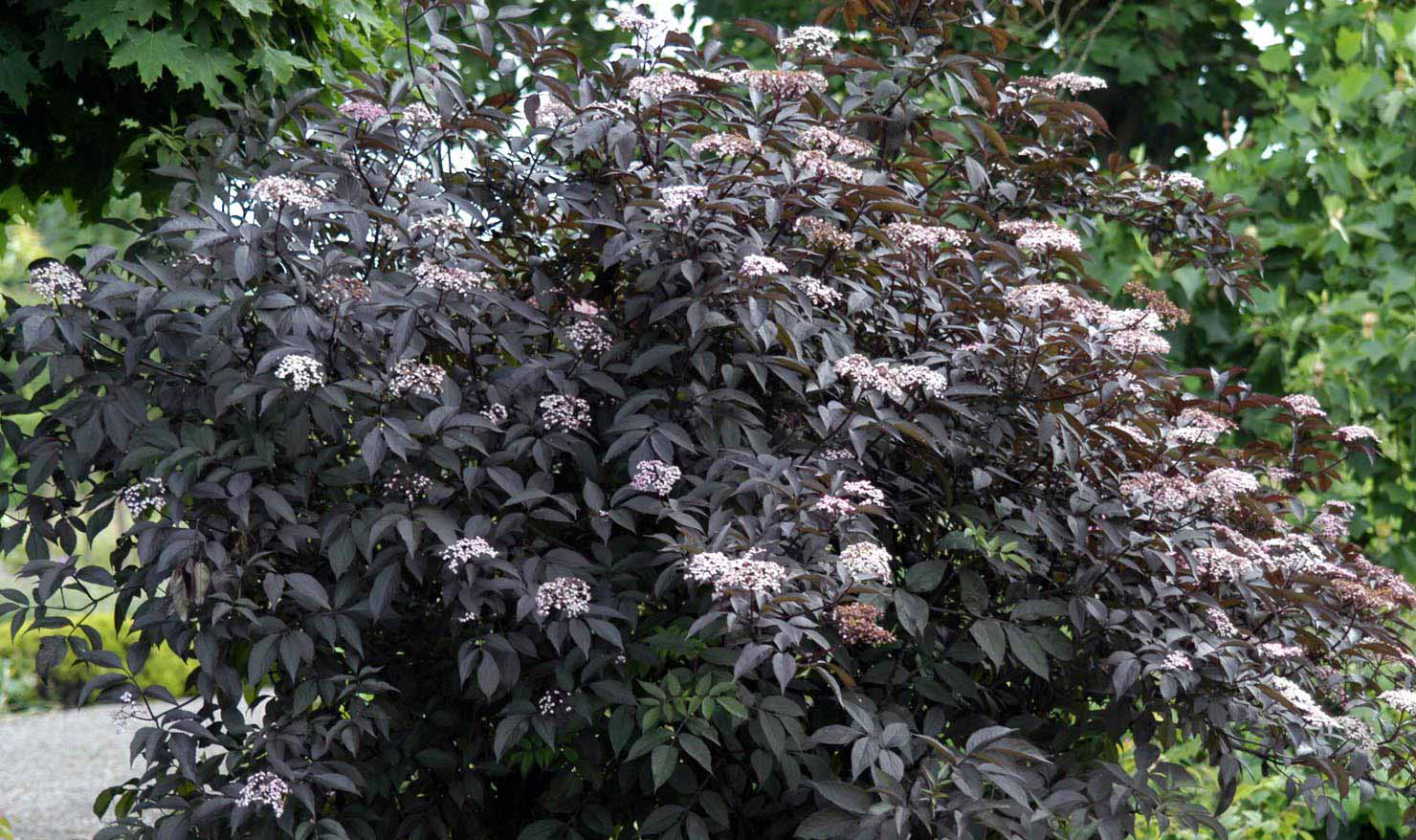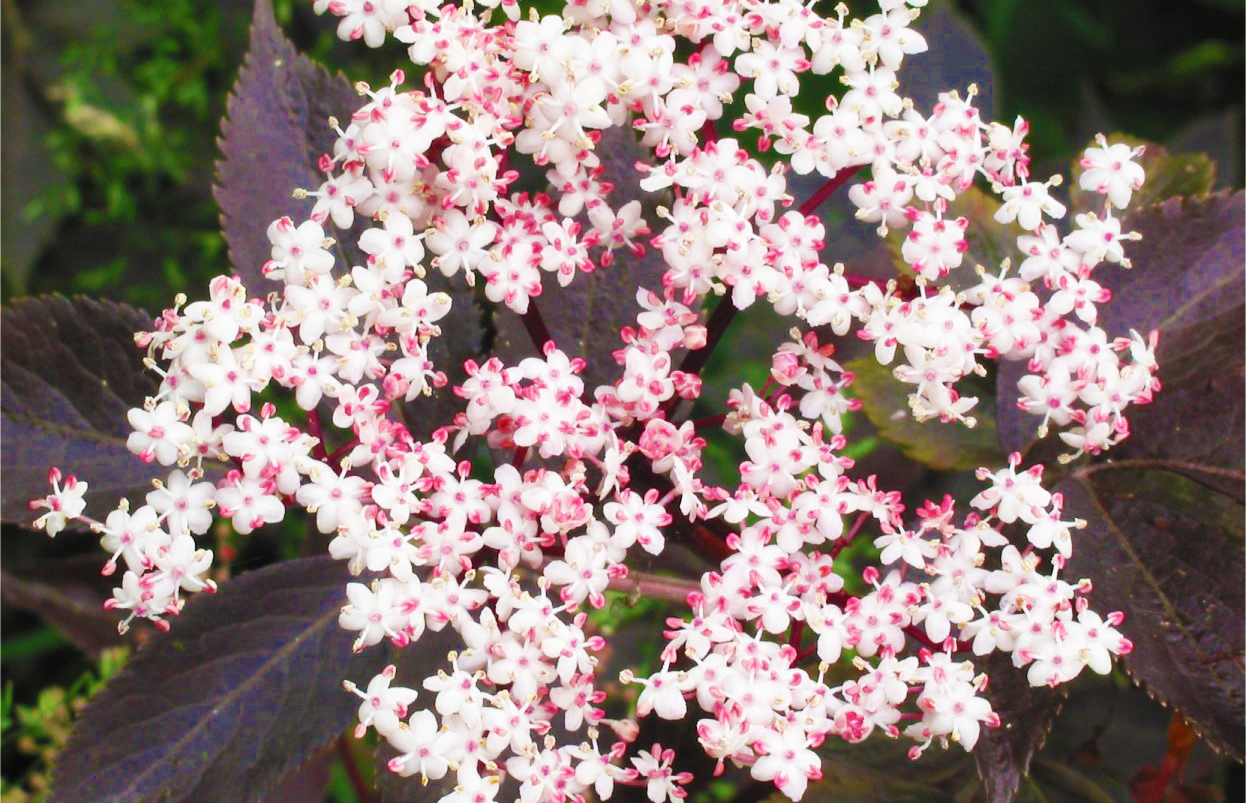There’s a dramatic new look for elderberries, and its name is Black Beauty. No, not the novel by Anna Sewell, or the fictional horse. No horses are involved here, black or otherwise. Black Beauty refers to an exciting new cultivar of the common European elder. Best known for its striking coloration, Black Beauty Sambucus (Sambucus nigra ‘Black Beauty’), also know as Black Beauty Elderberry, is a medium sized deciduous shrub with dark purple, almost black, foliage and pale pink flowers that stand out prominently amidst the more muted dark, light, and blue greens of the average landscape. Not to be confused with the similar cultivar Black Lace (Sambucus nigra ‘Black Lace’), which shares the purple coloration of Black Beauty (if in a somewhat darker shade), but has foliage with a much finer texture. Unlike Black Beauty whose leaves are sharply oval-shaped, compound, and subtly serrated, the foliage of Black Lace is multi-lobed and finely cut in a texture reminiscent of lace when viewed from afar.
Often used as an accent or specimen plant, Black Beauty Sambucus is also a prolific berry producer that will attract many bird species (best berrying will occur if grown near another S. nigra), is exceedingly tolerant of moist to wet soil conditions making it a great plant for stream and pond peripheries, and is highly deer resistant. Fruits of this species have also been known to be used for jams, jellies, and elderberry wine, but are not considered to be as flavorful as the American elderberry (Sambucus Canadensis).
Black Beauty Sambucus (Sambucus nigra ‘Black Beauty’) grows in zones 4-8, reaches a height of 8-15 feet with a spread of 4-8 feet, prefers medium to wet well-drained soils, flourishes best in full sun to partial shade, blooms pink in early summer with a somewhat lemony fragrance, is most well-known for its dark-purple foliage, and spreads via root suckers to form large colonies.
For more information on how we can transform your outdoor living space with a little help from Black Beauty (the plant that is), call us at us today at 703-679-8550 to set up a personal consultation.



Please can you tell me why our Black Beauty has not flowered this year we cut it back every autumn.
I am desperately looking for a Black Beauty Elderberry to cross pollinate with my Black Lace Elderberry. I have been looking for 2 years and do not understand why I cannot find one anywhere? I would greatly appreciate any help you can offer. Thank you!